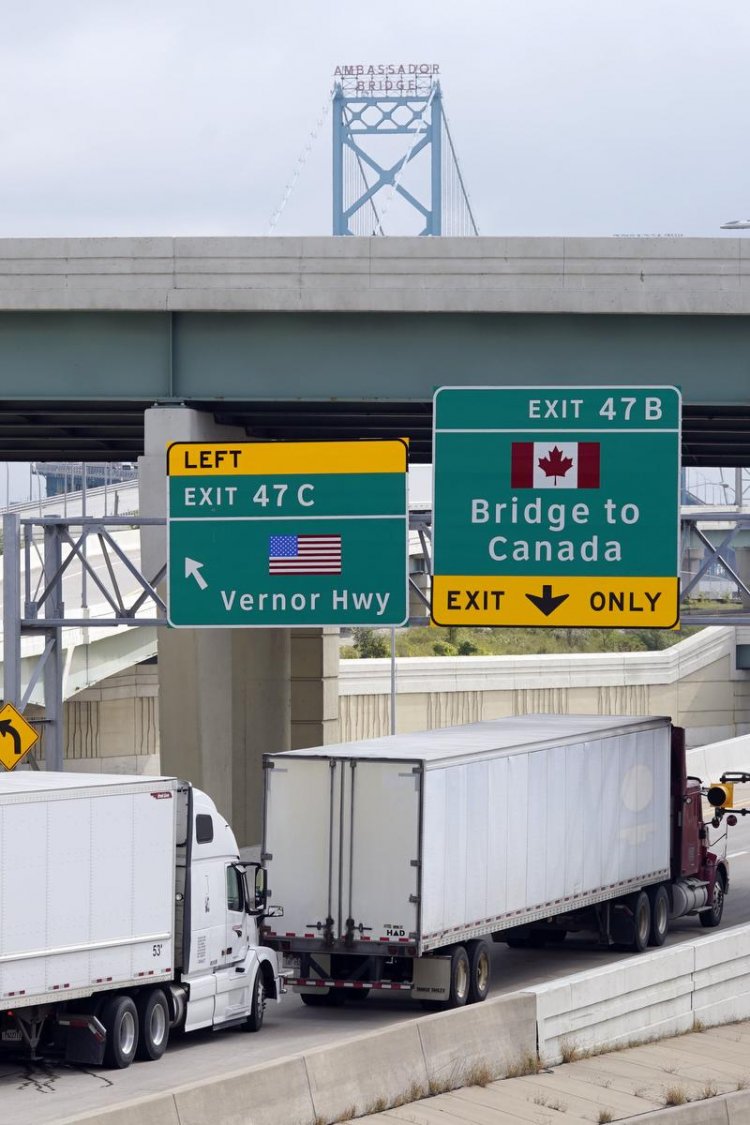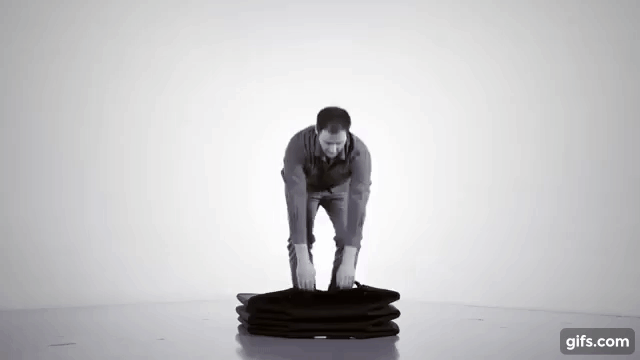Travelling to the U.S.? Here’s a checklist of what you’ll need to get over the border (and back)
Are you planning to head to the United States during a pandemic? We’ve compiled a quick checklist of things you’ll need before you get to the border.Travelling to the U.S. All airline passengers to the U.S., including fully-vaccinated travellers, who are two years old and up must provide a negative COVID-19 viral test taken within three days of travel or provide documentation from a licensed health care provider of having recovered from COVID-19 in the 90 days preceding travel. Fully vaccinated air travellers coming to the United States from abroad, including U.S. citizens, are still required to have a negative SARS-CoV-2 viral test result or documentation of recovery from COVID-19 before they board a flight to the United States. COVID-19 testing formatsThere are two kinds of COVID viral tests: PCR (polymerase chain reaction) tests that detect the SARS-CoV-2 virus by a specific nucleic acid and are the most accurate way to test for COVID, and rapid antigen test which people can be readily purchased online at reputable retailers and pharmacies like Shoppers Drug Mart, for about $40 per test. Access to rapid tests varies in different parts of the country, so people should check provincial health websites for details. Coming back to CanadaYou’ll need another COVID test. Anyone over the age of five will require a negative PCR test result.Travellers by land or air must provide a negative PCR COVID-19 test result taken within 72 hours of your arrival at a land border or prior to your scheduled flight to Canada. Rapid antigen test results will not be accepted. There are no exceptions for travellers who are partially or fully vaccinated. PCR tests can vary in price from $150 to $200 (U.S.) depending on state services. Some labs provide tests free of charge.Unvaccinated travellers will be required to take a COVID test upon arrival, and will be required to take another one after their 14-day quarantine. Download ArriveCAN before entering Canada All travellers entering Canada must download and use the ArriveCAN system to enter their traveller information, including proof of vaccination, before arrival. This includes all travellers, with limited exceptions, entering Canada by air, land or marine vessel.You’ll need to submit your information within 72 hours prior to your arrival to Canada.If you don’t submit your information, you may be denied boarding if you’re an airline passenger, or denied entry if entering by land or marine boarder crossing.Canadian citizens, permanent residents or people registered under the Indian Act and foreign nationals eligible to enter the country under exemptions like foreign work, study, compassionate grounds, will not be denied boarding or entry. However, those travellers who don’t submit information through ArriveCAN may face additional delays at the border for public health questioning and may be subject to fines or enforcement action. The mobile app is free and is available in English, French and Spanish. It can also save your contact and travel document information for travel at a later date. Dates you need to knowLand border restrictions for travel to the United States remain in effect through Oct. 21, 2021 and may be extended. Starting Oct. 30, anyone 12 years and older travelling from Canada will have to show proof they are fully vaccinated.This will include travellers departing from Canadian airports, on VIA Rail and Rocky Mountaineer trains.For travellers who are in the process of being vaccinated, there will be a short transition period where they will be able to travel if they can show a valid COVID-19 molecular test within 72 hours of travel, but that transition period will end on Nov. 30.Ivy Mak is a team editor on the Star’s breaking news desk, based in Toronto. Reach her via email: ivymak@thestar.ca


Are you planning to head to the United States during a pandemic? We’ve compiled a quick checklist of things you’ll need before you get to the border.
Travelling to the U.S.
All airline passengers to the U.S., including fully-vaccinated travellers, who are two years old and up must provide a negative COVID-19 viral test taken within three days of travel or provide documentation from a licensed health care provider of having recovered from COVID-19 in the 90 days preceding travel.
Fully vaccinated air travellers coming to the United States from abroad, including U.S. citizens, are still required to have a negative SARS-CoV-2 viral test result or documentation of recovery from COVID-19 before they board a flight to the United States.
COVID-19 testing formats
There are two kinds of COVID viral tests: PCR (polymerase chain reaction) tests that detect the SARS-CoV-2 virus by a specific nucleic acid and are the most accurate way to test for COVID, and rapid antigen test which people can be readily purchased online at reputable retailers and pharmacies like Shoppers Drug Mart, for about $40 per test.
Access to rapid tests varies in different parts of the country, so people should check provincial health websites for details.
Coming back to Canada
You’ll need another COVID test. Anyone over the age of five will require a negative PCR test result.
Travellers by land or air must provide a negative PCR COVID-19 test result taken within 72 hours of your arrival at a land border or prior to your scheduled flight to Canada. Rapid antigen test results will not be accepted.
There are no exceptions for travellers who are partially or fully vaccinated. PCR tests can vary in price from $150 to $200 (U.S.) depending on state services. Some labs provide tests free of charge.
Unvaccinated travellers will be required to take a COVID test upon arrival, and will be required to take another one after their 14-day quarantine.
Download ArriveCAN before entering Canada
All travellers entering Canada must download and use the ArriveCAN system to enter their traveller information, including proof of vaccination, before arrival.
This includes all travellers, with limited exceptions, entering Canada by air, land or marine vessel.
You’ll need to submit your information within 72 hours prior to your arrival to Canada.
If you don’t submit your information, you may be denied boarding if you’re an airline passenger, or denied entry if entering by land or marine boarder crossing.
Canadian citizens, permanent residents or people registered under the Indian Act and foreign nationals eligible to enter the country under exemptions like foreign work, study, compassionate grounds, will not be denied boarding or entry.
However, those travellers who don’t submit information through ArriveCAN may face additional delays at the border for public health questioning and may be subject to fines or enforcement action.
The mobile app is free and is available in English, French and Spanish. It can also save your contact and travel document information for travel at a later date.
Dates you need to know
Land border restrictions for travel to the United States remain in effect through Oct. 21, 2021 and may be extended.
Starting Oct. 30, anyone 12 years and older travelling from Canada will have to show proof they are fully vaccinated.
This will include travellers departing from Canadian airports, on VIA Rail and Rocky Mountaineer trains.
For travellers who are in the process of being vaccinated, there will be a short transition period where they will be able to travel if they can show a valid COVID-19 molecular test within 72 hours of travel, but that transition period will end on Nov. 30.
Ivy Mak is a team editor on the Star’s breaking news desk, based in Toronto. Reach her via email: ivymak@thestar.ca




















